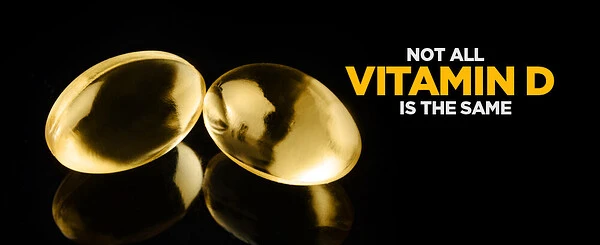Not All Vitamin D is the Same
Some vitamin D supplements exhibit excellent efficacy, while others are of moderate quality, and one particular form may offer limited benefits. Here is essential information you should be aware of.
It is far more detrimental to have a deficiency in vitamin D than to be short on funds. Deficiencies in this prohormone - like secosteroid can impact mental health, physical well - being, athletic performance, and aspects related to sexual health. Alarmingly, up to 80% of Americans have suboptimal vitamin D levels.
However, as awareness spreads, the sales of vitamin D supplements are experiencing a significant upsurge. Regrettably, not all individuals taking vitamin D are reaping the full range of benefits. Let's conduct a concise review of each form to determine the most suitable option for you.
Vitamin D: A Buyer's Guide
Vitamin D exists in various forms, analogs, and derivatives. The following is a detailed breakdown:
Vitamin D2 (Ergocalciferol)
Overview: Synthesized from ergosterol present in plants and fungi.
Potency: Demonstrates lower potency and stability compared to Vitamin D3.
Strengths: Suitable for vegans.
Weaknesses: Exhibits lower bioefficacy. It is less effective than D3 in maintaining serum vitamin D levels. Has a shorter duration of action, being cleared more rapidly from the body.
Summary: Unless you adhere strictly to a vegan diet, it is advisable to avoid D2. If you are vegan, you would need to consume approximately 50% more D2 to achieve a somewhat comparable effect to D3. Opting for lichen - derived cholecalciferol is a better choice. Although it is more costly than standard D2, it functions nearly as effectively as animal - derived D3.
Vitamin D3 (Cholecalciferol)
Overview: Obtained from animal - based sources such as lanolin (derived from sheep's wool) or fish liver oil.
Strengths: Displays superior efficacy. More effective in raising and maintaining serum 25(OH)D levels. Has a longer half - life, remaining in circulation for an extended period.
Weaknesses: Other than being unsuitable for vegans, the only consideration is that it is best taken with a fat - containing meal.
Summary: D3 is the standard form of vitamin D, which is effective for the majority of people.
Microencapsulated D3 with Labrasol
Overview: Produced by encapsulating vitamin D3 molecules within solid lipid nanoparticles. Combined with caprylocaproyl polyoxyl - 8 glycerides (Labrasol), a pharmaceutical delivery system that enhances drug absorption.
Strengths: Features the highest bioavailability. Corrects deficiencies more rapidly. Remains in the body for the longest duration. Offers superior absorption, even for individuals with digestive problems. Does not require consumption with a fat - containing meal. Is highly shelf - stable.
Weaknesses: More expensive than standard D3, but daily intake may not be necessary.
Summary: Microencapsulated D3 with Labrasol represents the premium form. This is the form utilized in D Fix (available for purchase on Amazon). Each softgel contains 5000 IU. If taken daily, each bottle provides a 3 - month supply. Even if you do not choose D Fix, ensure that "caprylocaproyl polyoxyl - 8 glyceride" is listed on the supplement's back label.
Liquid Vitamin D
Overview: Vitamin D (either D2 or D3) dissolved in a carrier oil.
Strengths: Easier to administer to children. Convenient for those who have difficulty swallowing pills.
Weaknesses: Precise dosing can be challenging without a proper dropper. Typically more expensive than gelcap supplements.
Summary: In terms of bioavailability, liquid delivery systems are no more effective than gelcaps. Ensure that they are oil - based and contain D3.
Bonus: Here's a method to determine if you have a vitamin D deficiency without undergoing a blood test. Additionally, explore the new vitamin D guidelines for enhanced health [link].
The Smart Shopper's Guide to Vitamin D
•
Author: Flint
•
fitness
sport
life

Share this article
